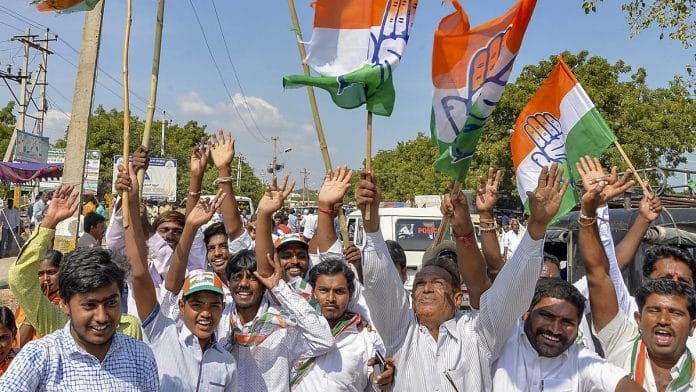It was on the night of 25 June 1975 that India’s democracy was quietly smothered under the weight of fear and tyranny. Not by an invading army. Not by a colonial power. But by our own elected government. A government led by the Congress party, the same party that claims it gave India its freedom.
That night, Prime Minister Indira Gandhi imposed a nationwide Emergency. With one signature, the Constitution was rendered powerless, civil liberties vanished, and the world’s largest democracy slipped into darkness. Over the next 21 months, India became unrecognisable. Parliament was silenced, the courts stood helpless, the press lost its voice, and the people lost their rights.
Journalist Coomi Kapoor, in her detailed account titled The Emergency: A Personal History, wrote that more people were jailed during those 21 months than during the entire Quit India Movement in 1942. This single line tells you how deep the betrayal ran.
The party that once chanted slogans of freedom jailed its own citizens for demanding it.
Courtroom verdict that shook a PM
The seeds of the Emergency were sown in a courtroom. In the 1971 Lok Sabha elections, Indira Gandhi secured a massive win from Rae Bareli. But her victory was contested by Raj Narain, a socialist leader, who accused her of electoral fraud.
On 12 June 1975, the Allahabad High Court found her guilty and declared her election void. The verdict disqualified her from holding office for six years. Her political legitimacy stood shattered. And rather than stepping down, she chose to strike at the very roots of democracy.
Gandhi advised then-President Fakhruddin Ali Ahmed to declare an Emergency. The order was signed in haste on the night of 25 June. The people of India went to sleep in a free country and woke up in a dictatorship.
Also read: JP wasn’t a saviour of Constitution. He called Mao his guru
India in chains
What followed was one of the darkest periods in our republic’s history. Opposition leaders were thrown into jail. Atal Bihari Vajpayee, LK Advani, Morarji Desai, Jayaprakash Narayan – all were imprisoned under harsh laws like the Maintenance of Internal Security Act (MISA).
The press was brought to its knees through censorship. Some newspapers, like The Indian Express, left editorial pages blank in protest. Students were hunted, citizens were watched, and those who spoke were put behind bars. The infamous forced sterilisation drive robbed countless people of dignity and choice.
Even those within Congress who raised their voices paid the price. Leaders like S Jaipal Reddy in Andhra Pradesh and then-Tamil Nadu Chief Minister M Karunanidhi were targeted for daring to oppose the Emergency.
Government figures reported over one lakh detainees under the MISA and Defence of India Rules (DIR). It was not just politics that suffered. India’s soul was under arrest.
The people answer back
Despite the repression, the people did not forget. And when given the chance, they responded with courage. On 21 March 1977, the Emergency was lifted. In the elections that followed, the Congress faced the full force of public anger.
The Janata Party coalition swept to power. Indira Gandhi lost her seat in Rae Bareli to Raj Narain, the very man whose challenge had triggered the crisis. Congress was wiped out in states like Uttar Pradesh and Bihar. For the first time, Indians realised that change was possible. That a Congress-free India was not a dream, but a choice.
Has the Congress changed?
The short answer is no. The same mindset that led to the Emergency still lingers in the Congress party today. It still believes in power without accountability. It still believes that only one family has the right to lead.
Time and again, it has sidelined deserving leaders in favour of dynastic loyalty.
Time and again, it has sidelined capable leaders in favour of dynastic loyalty. A telling example is that of Jyotiraditya Scindia. After the 2019 Lok Sabha elections, despite being a promising young leader from Madhya Pradesh and a loyal member of the party, he was kept away from key decision-making and denied major responsibilities. Eventually, disillusioned, he left the Congress to join the BJP in 2020, and now serves as a Union minister. This episode clearly reflects the Congress’ persistent preference for family over merit.
The Congress that once dominated Indian politics now barely holds on. It governs in only a few states. In many parts of the country, it has no presence at all. In the 2024 Lok Sabha elections, it contested 328 seats, but could win only 99. In several constituencies, it finished third or lower.
This is not just a story of electoral defeat, it is a story of losing touch with the people.
Also read: Alienating Hindus broke Congress. It must win them back to survive
Emergency is a warning, not a memory
Today, 50 years later, the Emergency still haunts our collective memory. It is a reminder that freedom cannot be taken for granted. That institutions must be protected. That democracy needs not just elections, but accountability, courage, and truth.
Had Congress respected democracy after Independence, India could have marched forward much faster. Instead, decades were lost to a politics of control, fear, and division.
The India we see today – confident, growing, respected across the world – is not the result of Emergency-style governance. It is the result of restoring people’s trust, empowering citizens, and putting the nation first.
The Emergency was not just a political blunder. It was a betrayal. The Congress party tried to erase the very idea of democracy in India. That cannot be forgotten. It should never be forgiven.
Those who hijacked MK Gandhi’s name have no right to speak about freedom. It is time they apologise to the nation. It is time they step aside.
Only then will India’s democracy truly be complete.
S Vishnu Vardhan Reddy is Vice President, BJP Andhra Pradesh. He tweets @SVishnuReddy. Views are personal.
(Edited by Aamaan Alam Khan)






